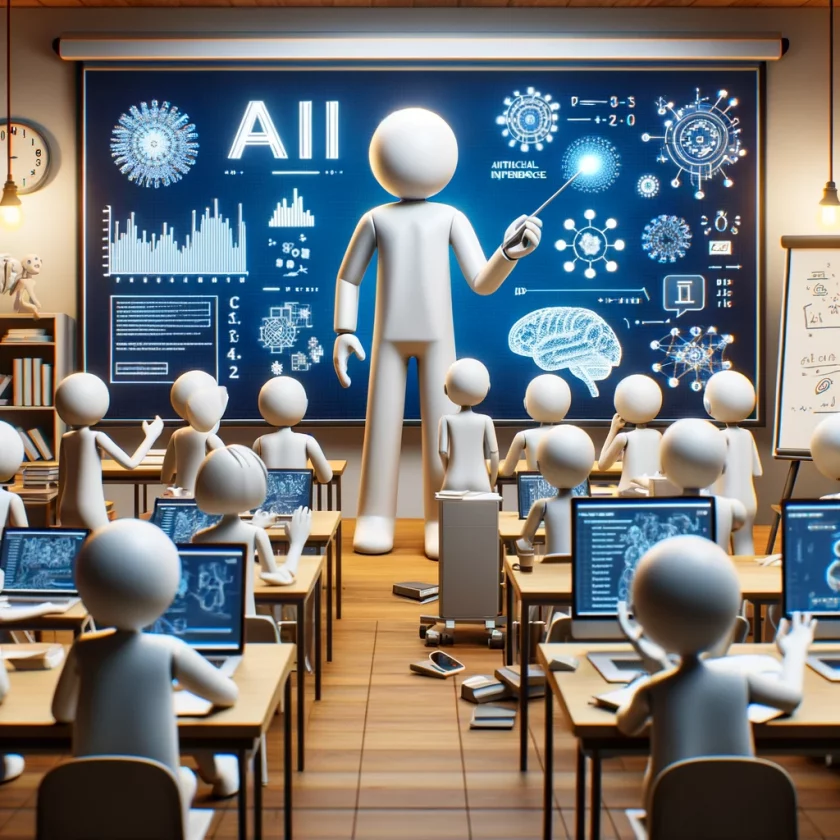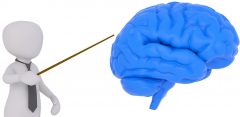
In an era where artificial intelligence (AI) is increasingly permeating various aspects of our lives, the academic world is also faced with the challenge of dealing with this rapid technological development. This is particularly true regarding final theses and term papers, raising the question of how we, as educational institutions, should handle the use of foundation models like ChatGPT, Google Gemini, and other language-based models (LLMs).
It would be illusory and counterproductive to ban the use of these technologies in academic works. Such a prohibition would not only be out of touch with reality but would also deprive our students of valuable learning experiences.
The use of AI detectors as a means to identify AI-generated texts cannot provide a reliable solution either. These detectors are often unreliable and frequently lead to false-positive results. Studies have shown that especially students with a migration background are often unfairly disadvantaged, with their texts wrongly marked as AI-generated. Such tools contribute to discrimination and undermine trust in the fairness of academic evaluations.
Instead, we should encourage our students to use AI confidently, creatively, and responsibly.
However, this requires an adjustment in how we select and evaluate topics for theses. Lecturers should adjust the choice of topics and the required level of work upwards, making the use of AI not only possible but indeed necessary. What can be created by simply pressing a button on ChatGPT will not be highly valued or rewarded in the future – nor should it be.
Rather than unrealistic prohibitions, we should instead incentivize students to disclose their use of AI through detailed documentation, showing how and where they have used AI in their work. A creative and, yes, intelligent use of AI can and should even lead to a better grade, as it reflects a skill that will be indispensable in the future workplace.
Finally, I see the need to place greater emphasis on the oral defense of theses. In an age where the boundaries between human and machine intelligence are increasingly blurring, evaluating solely based on written work can be misleading. An oral defense provides insight into the students’ deeper understanding and critical engagement with their topic.
Overall, it is time we view AI not as a threat but as an opportunity to improve the quality of our academic education and prepare our students for a future where AI will play a central role.
The author, Holger K. von Jouanne-Diedrich, Ph.D., is Founding Professor of the Competence Centre for Artificial Intelligence at the Technical University Aschaffenburg, Germany, and Fellow for Artificial Intelligence at the Think Tank Zukunft-Fabrik.2050 of the Alumni Organization of the University of St. Gallen, Switzerland.

As someone who is currently writing my master thesis and an absolute LLM enthusiast, I must say that ChatGPT, even with careful prompt engineering, is far less helpful than expected. The responses are too general, extensive, and filled with too much beating around the bush. Even with a lot of background information and provided style preferences, the responses are mostly unusable. I also find that even GPT4 struggles to get to the point and uses inappropriate adjectives that make the content somehow unsuitable for academic work. And yes, I ask GPT for translations and ask for tips on rephrasing, grammar, and spelling checks, but the use or prohibition of automatic spelling or grammar aids like Grammarly, to my knowledge, has never been discussed either. For bachelor theses and simple essays, it might be a bit different, but in my opinion, the support for high-quality academic work and thesis’s is currently much less than often discussed. Moreover, in my opinion, the value of the thesis arises from the planning, execution, evaluation, and communication of the results, not from the writing quality.
Many of my friends holding a bachelor degree said that the thesis is now worthless. This, in my opinion, impressively shows how little students understand what didactically should to be achieved with their work. Isn’t it true that the hours of rephrasing and checking for spelling errors are the least important and at the same time the most time-intensive part of the entire work? Of course, it’s great to be able to express oneself clearly and to master spelling, but from a scientific perspective, this is quite irrelevant. Maybe students can spend more time on important things like the study design and statistical analysis from now on. With the use of LLM´s they might get more academic knowledge from an academic degree than right now.
I agree with most of your points. I think the models will get a lot better in the (near) future and more and more of the boring routine stuff will be done by bots.
A truly enlightening post, Dr. von Jouanne-Diedrich! Your approach of embracing AI in academic settings as an opportunity rather than a threat is refreshing and necessary. The emphasis on enhancing the evaluation process, particularly through oral defenses, aligns well with the future of education where AI integration is inevitable. For those interested in diving deeper into how AI can transform various sectors including education, do check out with dataexpertise.in this detailed exploration on AI and Data Transformations (https://dataexpertise.in/ai-and-data-5-transformations/).